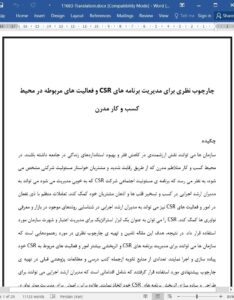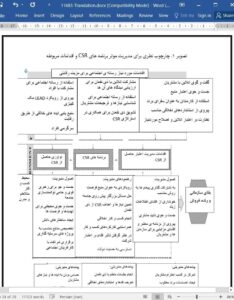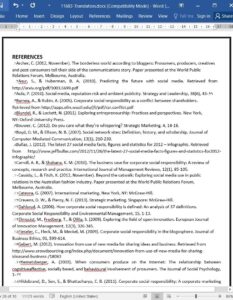ABSTRACT
Organisations can make a valuable contribution in alleviating poverty and improving the general living standards of society. In the modern turbulent business environment, characterised by intense competition and customers demanding corporate responsibility, it further seems that a well-managed corporate social responsibility (CSR) plan could assist executives in winning the hearts and minds of their customers. Regular interactions with stakeholders on CSR initiatives can also assist executives in identifying trends in the market and introducing innovations. CSR can further be used as a strategic tool to manage the reputation of the organisation. Consequently, the purpose of this paper is to provide a theoretical framework on guidelines that organisations could implement to manage their CSR plans and CSR-related initiatives more effectively. A number of secondary sources, including textbooks and previous research studies, were consulted in compiling the proposed framework which includes actions that executives could take to design and implement their CSR plans more effectively. In addition, principles for the effective management of CSR-driven innovations and reputation management initiatives are also provided. The framework also focuses on guidelines for the types of social media initiatives that would need to be incorporated into the executive’s strategic plan to ensure that the strategy implemented is truly competitive. The paper concludes with a number of recommendations that could be further investigated in a follow-on empirical study to provide further assistance to organisations wishing to survive and grow their businesses in the modern turbulent business environment. The paper is relevant to executives requiring guidance on implementing their CSR initiatives more successfully and contributes to the improvement of organisational behaviour within the socially responsible environment.
1. INTRODUCTION AND BACKGROUND
In the modern era, in which market and industry boundaries can no longer be easily defined, executives are confronted with many complex and challenging problems. New and disruptive forms of competition are emerging, customers have greater insight and demands, and many individuals have become activists placing pressure on organisations to follow high ethical standards and take care of their corporate responsibility. In this turbulent business environment executives are left with no alternative but to investigate new sources of competitive advantage (Cravens & Piercy, 2013, p. 227).
6. CONCLUSIONS AND RECOMMENDATIONS
In the new connected millennium, the intensification of competition, greater demands from customers, and social media challenges have created pressure for organisations to perform and survive. Executives are left with no alternative choice but to find new avenues to gain a competitive advantage and grow their businesses over the long term.
Organisations could focus on CSR initiatives as a starting point to assist them in obtaining a competitive advantage. Regular interactions with customers would then further aid executives in identifying new corporate social innovation initiatives that could benefit society. The effective communication of CSR plans might also help organisations in building a positive reputation and persuade customers that they are truly caring about the world.










